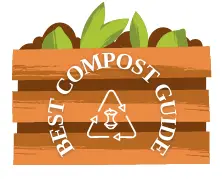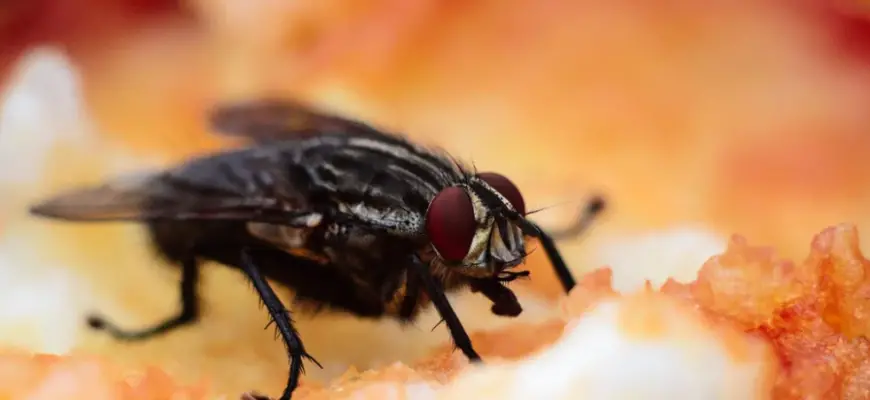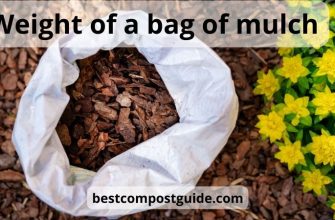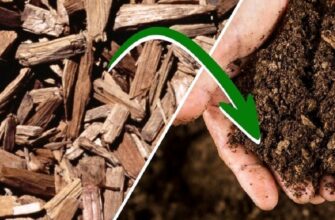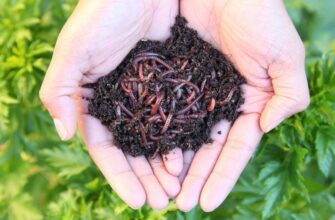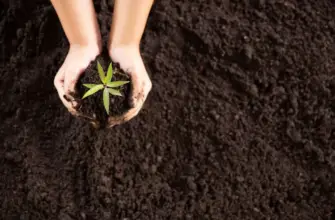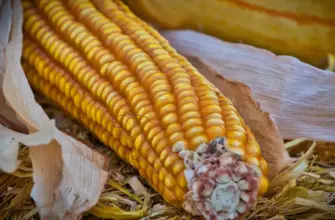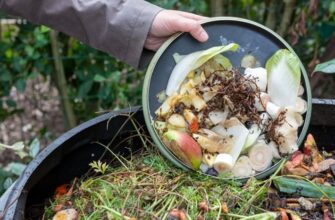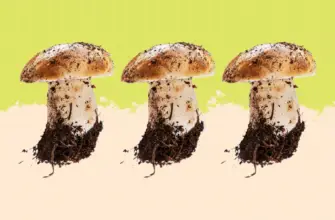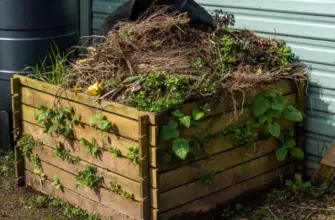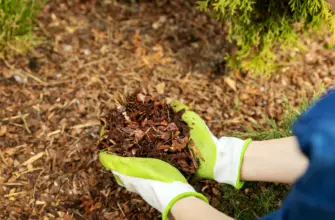By composting food waste, you can save landfill space and reduce the amount of methane released into the air. At the same time, you get an excellent fertilizer for the garden and vegetable garden. However, often gardeners are faced with such nuisance factors, as flies in the compost bin. You can read more details about the fruit flies and the fight against them in this article.
- Reasons for the appearance of flies in your compost pile
- Open or leaking containers
- Adding bones to compost pile
- Water seepage into compost bin
- Lack of natural predators
- Should there be flies in the compost?
- Types of flies found in compost
- Vinegar flies and fruit flies in compost bins
- House flies
- Flying soldier flies
- How to get rid of fruit flies in compost?
- Are flies a problem?
- How to prevent flies in compost?
- Keep container closed
- Bury the compost
- Constantly mix brown and green waste
- The need for outdoor compost material
- Using a banana peel trap
- Freezing compost
- Placement of compost bin in an open area
- Adding a sprig of mint to get rid of flies in your compost
- Planting special herbs
- The use of essential oils
- Results
Reasons for the appearance of flies in your compost pile
People often wonder why there are so many flies in my compost bin. Flies in the compost bin appear if you don’t manage your pile well. You can read about the main sources that attract fruit flies in more detail below.
Open or leaking containers
You can often hear the question, do flies lay eggs in compost? Yes, fruit flies can lay eggs in compost. After they hatch and quickly multiply. On average, fruit flies can live no more than a month. However, the female can lay up to 150 eggs at a time.
If the compost bin is open or leaking, fruit flies love to flock to them to find food and shelter. In a few days, there will be about 900 eggs in the heap. After a few weeks, they become adult flies, so the compost will be heavily clogged with them.
Adding bones to compost pile
If animal products are added to the compost bins, they will emit an unpleasant odor as they decompose. They attract fruit flies in your compost.
If you have a lot of animal waste, you need to keep it in closed containers or combine it with plant waste.

Water seepage into compost bin
Fruit flies prefer to colonize wet compost. Therefore, they need water to reproduce. Excess water will break down the compost. If the humidity exceeds 60%, anaerobic bacteria begin to form and decompose.
Rainwater provokes rotting fruit products and the release of carbon dioxide. This attracts fruit flies and also encourages their reproduction.
Lack of natural predators
Fruit flies have natural predators. If there are a lot of flies outside the house, then there are no birds, spiders, or frogs nearby.
Predators can feed on flies at different stages of their development. Some feed on eggs and larvae, while others feed on adult flies.
If there are no predators near the house, the compost bin will be populated by flies. Therefore, it will not bring any benefit to your garden.
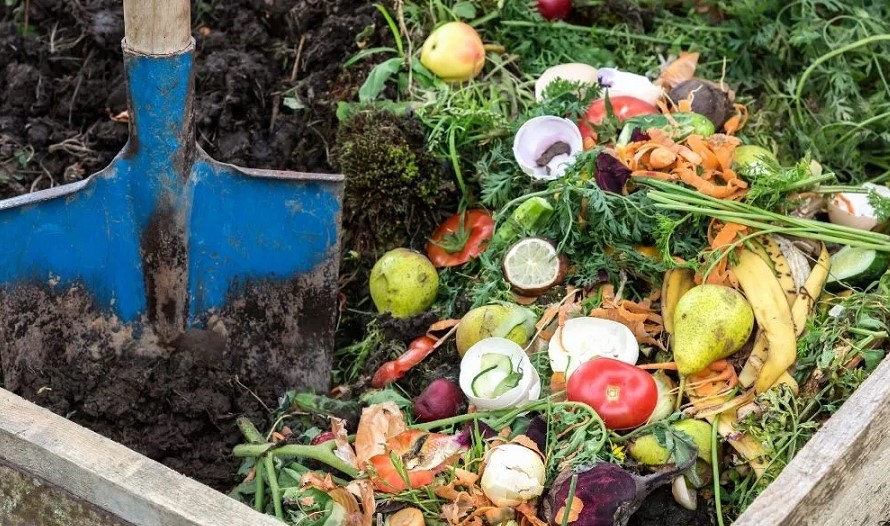
Should there be flies in the compost?
Flies help turn food waste into compost. They contribute to the aeration of the compost, so the decomposition process is accelerated. If the flies are single, no problems arise.
If the compost is heavily infested with flies, then the composting was done incorrectly. If the flies begin to multiply intensively, they can even attack fresh food in the yard or the house.
Types of flies found in compost
A whole family of insects is called flies, so you can meet different species. You can read more about the main varieties that are found in the compost bin below.
Vinegar flies and fruit flies in compost bins
Visually, these two species are similar to each other. The difference is only in food preferences. Fruit flies are small and brown. Their eyes are red. They prefer to eat overripe foods.
Vinegar flies prefer to feed on the yeast found in overripe fruit. Both species can bother a person because they often fly directly in the face, or sit on food in the fruit bowl. Vinegar flies larvae can speed up the decomposition process.
If vinegar flies and fruit flies bother you, they are fairly easy to deal with. The use of special traps is allowed.
You can buy them or make your own by mixing apple cider vinegar and dish soap. The mixture must be poured into a jar with a funnel, where the flies will fall.
You can also use a vacuum cleaner to suck up flies that have landed on the surface. However, the process has to be carried out several times a day.
Do not forget to take out the garbage on time, and do not store spoiled food in the house.
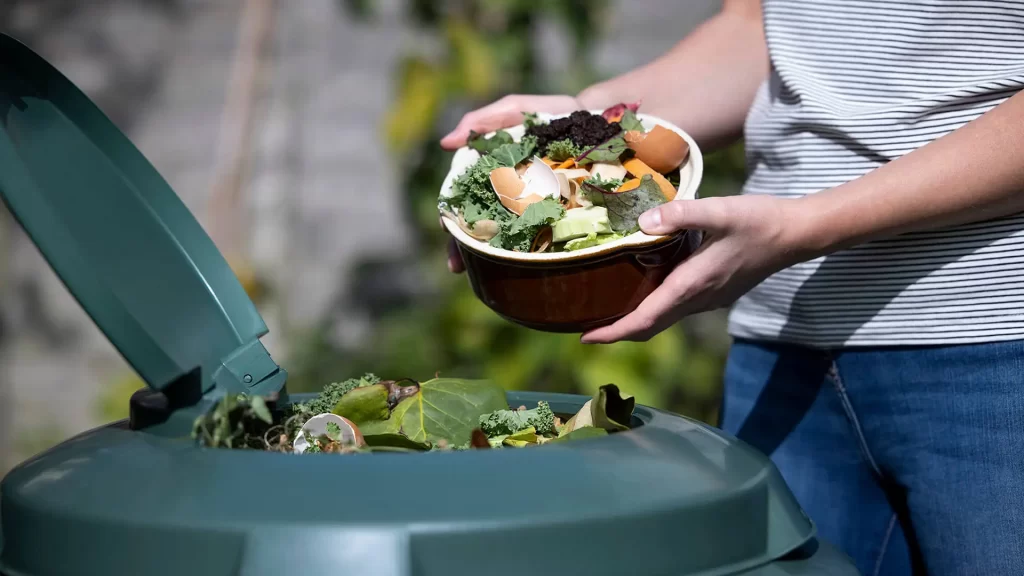
House flies
This type of fruit fly is considered the most common. The house flies often start in the compost, so they need to be dealt with immediately. It is recommended to always take out the trash and clean up spoiled food. You can also use a special fruit fly trap.
Flying soldier flies
The soldier flies are useful, despite their intimidating appearance. The soldier flies
look a bit like a wasp and a housefly. The larvae of this insect can process food into compost.
How to get rid of fruit flies in compost?
Many people ask, how do I get rid of flies in my compost? It is the green waste that is contained in the garbage that attracts a fruit fly.
It can be cut vegetables and fruits. The easiest way to deal with flies is to increase the amount of brown material.
It is recommended to combine green and brown material in a ratio of 1:2. The brown material is too dry for the fruit fly to feed on. Yes, this slows down the compost decomposition process a little; however, insects cannot reproduce.
You should also periodically turn the compost to increase the acid-base balance. You can also add a little lime to keep flies and their larvae from breeding in the compost. However, lime is not always relevant.
The bottom line is that it can contribute to the release of ammonia gas. Therefore, the unpleasant smell of the compost bin will only increase. The same effect is observed if baking soda is added.

Are flies a problem?
Fruit flies should not be allowed in the compost. After all, they multiply very quickly and can lay their eggs on food that you will then consume.
How to prevent flies in compost?
To prevent fruit flies in the compost, it is recommended to use a special container. You can read the main recommendations in more detail below.
Keep container closed
On the countertop, you should always keep a container that closes. You can’t leave the trash can open. After each addition of products to the basket, it should be covered immediately so that a fruit fly does not get inside.

Bury the compost
As soon as you add green waste to the compost, it should be immediately covered with brown waste. Green waste can’t get into the air.

Constantly mix brown and green waste
When mixing these two types of waste, the process of compost decomposition is accelerated. In doing so, you can reduce the reproduction of the fruit fly. Mixing should be carried out at the stage of each addition of products.
The need for outdoor compost material
If you’re composting meat, dairy, and fatty food scraps, it’s best to do so outdoors. As they decompose, they will emit a rich, unpleasant odor that will attract flies.
If you collect such products inside the house, then you will increase the number of flies. After, they will even disturb your sleep.

Using a banana peel trap
If you don’t want to make a trap out of apple cider vinegar and detergent, banana peels can be used as an alternative. Keep it next to a bin that collects compost.
You can also combine vinegar and banana peels, and place everything in a container. Cover the top with foil and poke small holes. After you will see that a lot of flies have accumulated inside.
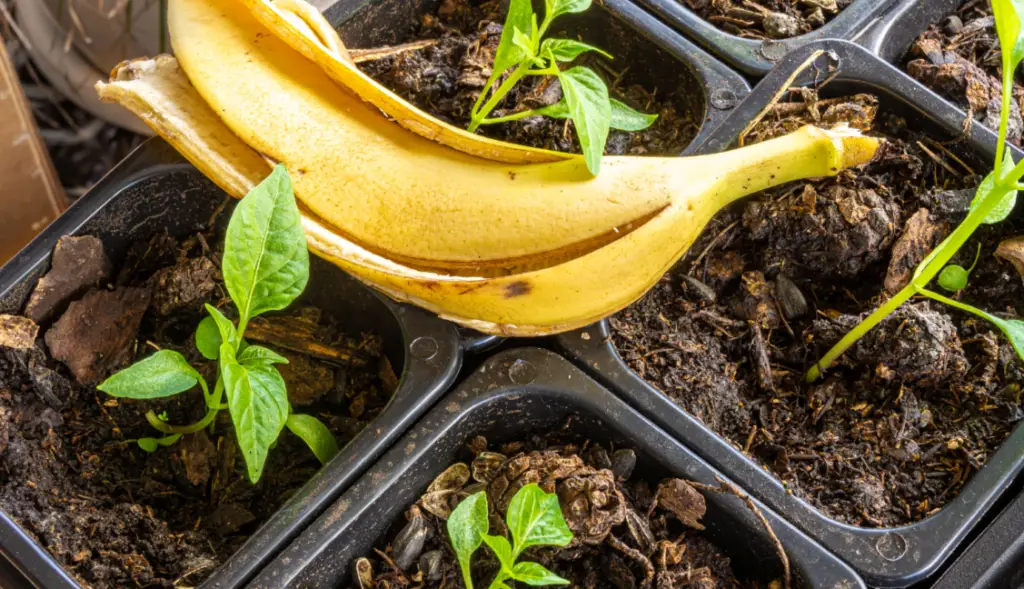
Freezing compost
If you collect food scraps for the compost bin in a large batch, which flies immediately begin to colonize, it is recommended to change the storage method.
If you’re stockpiling compost products and don’t plan on throwing them in the bin, you can put them in a bag. Then store in the freezer.
Under such conditions, flies will not be able to infect the compost. Therefore, you can reduce their number in the yard and the house.
Placement of compost bin in an open area
Fruit flies prefer to breed in warm environments. However, they will not be able to do this if it is too hot.
To increase the temperature in the compost bin, you can place it in an open area under the sun. This will provoke the death of fruit fly larvae.
Adding a sprig of mint to get rid of flies in your compost
Mint is a plant that has a rich aroma. As you know, fruit flies do not tolerate this smell. If you add fresh mint to your compost, it will saturate it with this bright aroma. Therefore, fruit flies will disappear.
Planting special herbs
If you want to get rid of flies in the compost and the yard, it is recommended to plant special types of plants on the site. It can be lavender, basil, mint, etc. The main thing is that the plants have a rich and specific aroma that will repel flies.
It is recommended to place such plants around a compost heap. It is important to note that the yard will smell good if you do this.
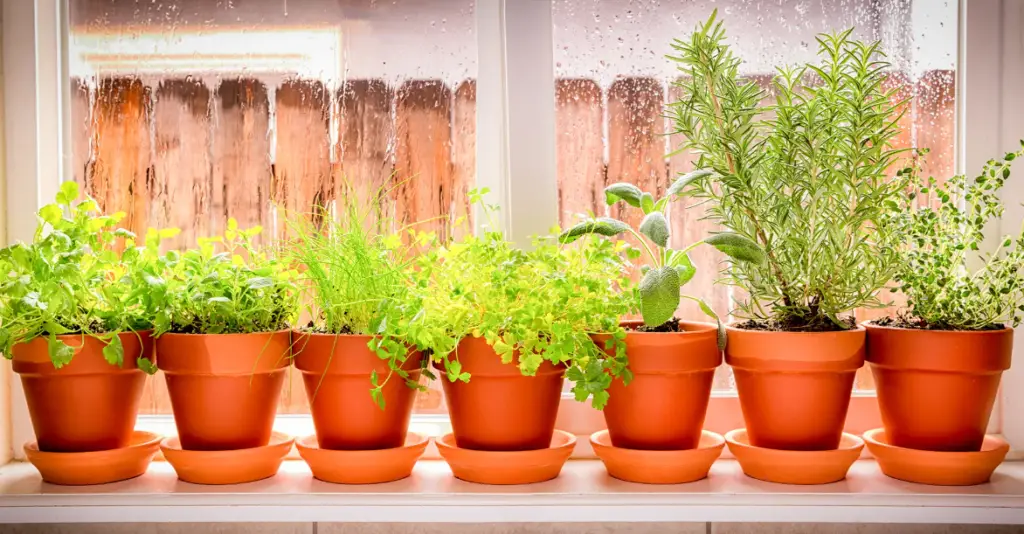
The use of essential oils
If you don’t want to spend time planting special plants in your yard, you can use essential oils. Choose substances with oils of peppermint, lavender, eucalyptus, lemongrass, etc. This allows you to quickly and effectively get rid of fruit flies.
You can add a few drops to the compost. It is best to do this in those places where the flies get to the compost bin. This will prevent them from getting inside the container or heap. The constant use of essential oils will allow you to completely exterminate insects.
Results
As you can see in this article, flies in the compost appear quite often. Their appearance is often associated with the excessive use of green waste. If flies cause you anxiety, you can quickly get rid of them. To do this, there are several simple methods, which were discussed in this article.
A small number of flies can even benefit the compost. Therefore, you should not exterminate all insects because they contribute to the rapid decomposition of waste.
Read also: Can you compost pineapple, composting possibilities and useful compounds for your soil and plants
Read also: Small white maggots in compost: a complete guide
